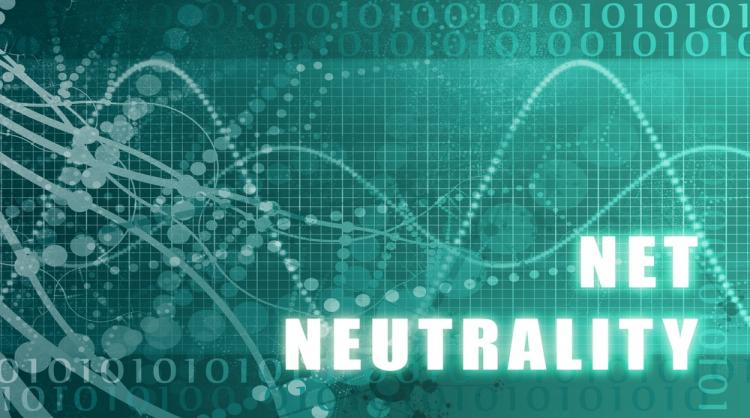The End of Net Neutrality: Catastrophe or Godsend?
April 21, 2017 | by Andrew Regitsky

While perusing the latest FCC filings and news stories trying to decide what to write about this week, I couldn’t help but notice that so many are already characterizing the Commission’s upcoming review of the 2015 Open Internet Order (widely known as the Net Neutrality Order) in apocalyptic terms.
While we don’t know exactly what the FCC will do about net neutrality, FCC Chairman has made no secret of the fact that he believes it was a mistake in 2015 for the Commission to classify broadband Internet access service (BIAS) as a Title II telecommunications service and regulate ISPs as if they were public utilities (i.e., like electric companies). Pai is well aware that if the FCC tackles this issue, it will require the Commission to conduct an entire new proceeding to satisfy the Administrative Procedure Act (APA) requirements. That would take months and Pai knows that any order reclassifying BIAS as a Title I information service will be fought for years in the courts. All the while, the agency would face an extremely critical press and a cadre of consumer advocates. Therefore, Pai would much prefer Congress to legislate a solution, one that would withstand a future Democratic-majority FCC. However there are no signs that Congress is ready to compromise on net neutrality.
Obviously, we live in partisan times, and folks will certainly disagree about the wisdom of certain FCC policy decisions based on their views of whether they believe government intervention is needed on a particular issue. Moreover, any key FCC decision will impact companies and conceivably put millions of shareholder dollars at stake, so any important FCC decision will trigger spirited debate. After 34 years of working on telecommunications regulatory issues, I can safely say, however, that there has never been an issue where both sides couch their arguments in such cataclysmic terms as they do with net neutrality.
Conservatives are salivating at the prospect of eliminating Title II regulation of ISPs, but believe the challenge is great:
FCC Chair Ajit Pai has not even hit his 100-day mark as chairman, but he is already on track to become the most consequential and arguably the most successful FCC leader in a generation. Fresh from his success in urging Congress to overturn the Obama FCC’s poorly written and absurdly complicated Internet privacy proposal, Pai is poised for his biggest challenge yet: undoing the previous Commission’s 2015 vote to regulate broadband as a public utility (referred to as Title II regulation). This vote, taken after unprecedented meddling from the Obama White House, put today’s internet networks under the yoke of a 1934 law meant for rotary-dialed telephones. (“The FCC’s Biggest Challenge Yet,” written by Steve Pociask, Forbes on line, April 18, 2017).
Liberals on the other hand believe that classifying BIAS as a Title I telecommunications service will allow ISPs unprecedented freedom to impose higher prices and reduce broadband access for poorer Americans, with no effective regulatory check on their powers.
Here’s what we know about Pai’s latest scheme: He’s planning to erase the utility designation the Obama FCC re-applied to high-speed internet access carriers in February 2015 (following an unprecedented 10-year period of deregulation). In parallel, in an empty bid to pay lip service to the idea of an open Internet, he wants to shift authority to the Federal Trade Commission. You can get an idea of his thinking by this approach to net neutrality, the principle that puts all online services on an equal footing and preserves the ability of smart new companies to attract investment and find their customers. His plan is wildly contingent and transparently toothless. He will (1) persuade carriers to voluntarily say something about net neutrality in their terms of service; (2) say that the FTC, an agency without rule-making authority or particular expertise in telecommunications, will go after carriers that act in ways that contradict the vague language the carriers insert into their multi-screen terms of service; and (3) remove the FCC’s legal ability to act as a regulator with respect to the private monopolies that control Internet access in this country. (“The FCC is Leading us to Catastrophe,” written by Susan Crawford, Backchannel on line, April 17, 2017).
Of course both sides on this issue are hyperbolic. Conservatives can selectively point to data that shows that Title II regulation has hurt broadband investment, however, that data is contradicted by other data that show no such reduction. Liberals act like the Federal Trade Commission is a toothless agency when it fact it has taken action against companies that have engaged in unfair trade practices and could easily do so against ISPs.
The fact is, regardless of whether ISPs are regulated by the FCC or FTC there will be enough regulatory authority to discipline bad actors that violate the rules. Thus, the real argument it seems to me is whether ISPs should be regulated proactively under Title II with rules set in advance for all participants, or whether complaints against individual ISPs should be reviewed under Title I on a case-by-case basis with fewer rules imposed in advance. Regardless of what you believe, the results of the new net neutrality debate will likely not be cataclysmic or a godsend, just business as usual.
By Andy Regitsky, CCMI

